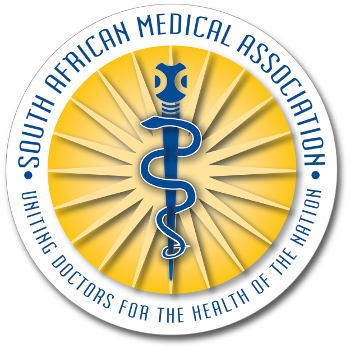Please log in to gain access to the documents. (Click here to Login)
 Guideline on Death Verification
Guideline on Death Verification
 SAMA Impaired Practitioners version 4
SAMA Impaired Practitioners version 4
 SAMA Guideline: POPI Impact Assessment
SAMA Guideline: POPI Impact Assessment
 SARS-CoV-2 (COVID-19) Guidance for Managing Ethical Issues
SARS-CoV-2 (COVID-19) Guidance for Managing Ethical Issues
 SARS-CoV-2 (COVID-19) Guidance for Managing Ethical Issues (Abridged)
SARS-CoV-2 (COVID-19) Guidance for Managing Ethical Issues (Abridged)
 Electronic Communication Guidelines
Electronic Communication Guidelines
 Guideline for Doctors on Domestic violence, rape & assault
Guideline for Doctors on Domestic violence, rape & assault
 Guideline for Medical Practitioners on Euthanasia
Guideline for Medical Practitioners on Euthanasia
 Guideline for Medical Practitioners on Safety in the Workplace
Guideline for Medical Practitioners on Safety in the Workplace
 Guideline for Medical Practitioners taking Blood Samples in drunken driving cases
Guideline for Medical Practitioners taking Blood Samples in drunken driving cases
 Guideline on doctors and students using Social Media
Guideline on doctors and students using Social Media
 Guideline on Ethical & Human Rights aspects of HIV/ AIDS 2006
Guideline on Ethical & Human Rights aspects of HIV/ AIDS 2006
 Guideline on Ethical & Human Rights aspects of HIV/ AIDS Addendum 2009
Guideline on Ethical & Human Rights aspects of HIV/ AIDS Addendum 2009
 Guideline on Informed Consent with example
Guideline on Informed Consent with example
 Guideline on maintaining patient confidentiality in Wards
Guideline on maintaining patient confidentiality in Wards
 Guideline on Restraint of Trade clauses in Employment Contracts
Guideline on Restraint of Trade clauses in Employment Contracts
 Guideline on the Completion of Death Certificates
Guideline on the Completion of Death Certificates
 Guideline on the Fitness to drive when suffering from certain conditions
Guideline on the Fitness to drive when suffering from certain conditions
 Guideline on Witness Fees payable: Civil & Criminal cases
Guideline on Witness Fees payable: Civil & Criminal cases
 Guideline to Doctors and Pathologists re Patients collect lab results
Guideline to Doctors and Pathologists re Patients collect lab results
 Guideline to Pathologists and Medical Practitioners Patients collecting Lab results
Guideline to Pathologists and Medical Practitioners Patients collecting Lab results
 Guideline with regard to Living Wills and Advance Directive
Guideline with regard to Living Wills and Advance Directive
 Guideline: Medical Certificates for sick leave and/ or reasonable accommodation
Guideline: Medical Certificates for sick leave and/ or reasonable accommodation
 Information for Medical Practitioners on Leave (1)
Information for Medical Practitioners on Leave (1)
 Information for Medical Practitioners on Leave (2)
Information for Medical Practitioners on Leave (2)
 Information for Medical Practitioners on the Children’s Act
Information for Medical Practitioners on the Children’s Act
 Information on Fitness to drive while suffering from certain conditions
Information on Fitness to drive while suffering from certain conditions
 Information on the correct procedure to gain access to information
Information on the correct procedure to gain access to information
 Informed Consent: Agreement entered into between Medical Practitioner and Patient
Informed Consent: Agreement entered into between Medical Practitioner and Patient
 Legal and Ethics Considerations in relation to Requests for Patient Information – PAIA & HPCSA
Legal and Ethics Considerations in relation to Requests for Patient Information – PAIA & HPCSA
 Rights and Responsibilities of Doctors and Patients
Rights and Responsibilities of Doctors and Patients
 SAMA Guidelines on Perverse Incentives 2016
SAMA Guidelines on Perverse Incentives 2016
Doctors And Patients Rights And Responsibilities
This document should be read in the light of the provisions of the South African Constitution and the ethical duties placed on doctors by the Health Professions Council of South Africa.
DOCTORS
| Rights | Responsibilities |
|---|---|
|
|
PATIENTS
| Rights | Responsibilities |
|---|---|
|
|
